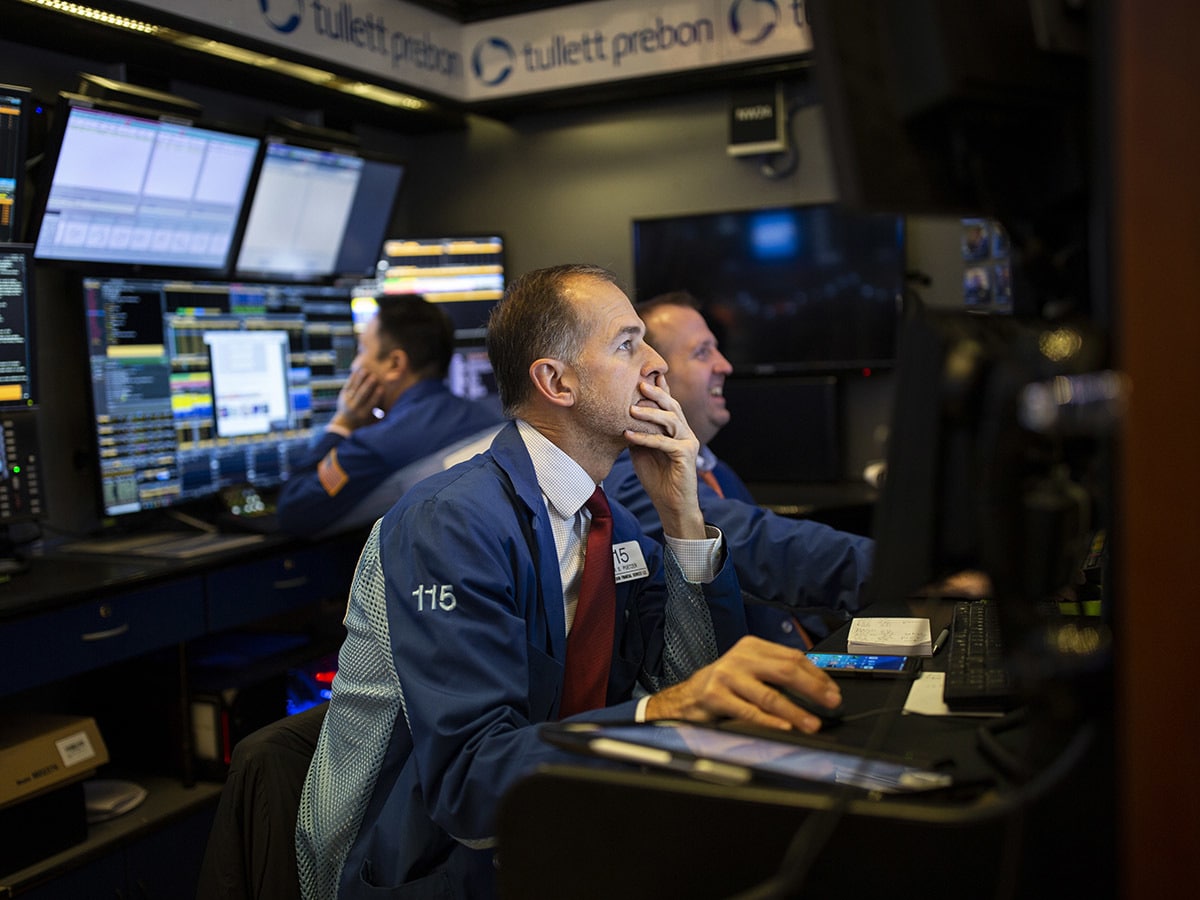The glamour of growth stocks appeared to wane in October, causing nervousness among investors. Could there be a shift to value investing underway and will it provide investors with the bargains they’re looking for?
While the iShares Russell 1000 Value ETF [IWD] fell 1.1% in October, the iShares Russell 1000 Growth ETF’s [IWF] larger decline of 3.3% in the same period revealed a shift in sentiment.
Earlier this year, lockdown measures had boosted the demand for online services, leading to explosive revenue and sales numbers. The improved business outlook for e-commerce pushed share prices higher and higher with some companies becoming extremely overvalued. For example, Zoom Video Communications’ [ZM] market value at its 52-week high of $588.84 was an eye-watering $161.65bn on 19 October. Its PE ratio was 607.72 on 3 November.
$161.65billion
Zoom's market valuation at its 52-week high
The tech rout in early September did see the share prices of many big-name companies slide as the market corrected itself. While some stocks, like Paypal [PYPL] and Square [SQ], powered on to reach all-time highs in October, others such as Apple [AAPL] and Tesla [TSLA] wobbled and failed to maintain momentum.
The pullback had opened up an opportunity for investors to buy into attractive tech and e-commerce companies at beaten-down prices. However, given ongoing volatility — as well as economic and political uncertainty — such growth stocks might not deliver the best returns. Instead, investors may turn their attention to value stocks.
Value stocks to watch
Pharmacy chain CVS Health’s [CVS] share price was down 17.4% in the year-to-date (through 3 November) and up 14.2% from its 52-week low recorded in March. For the three months to the end of June, the company posted revenue of $65.3bn, up 3% year-over-year. It posted a positive EPS surprise of 36.7% — Zacks Equity Research data shows that it has had a stellar track record of beating quarterly EPS expectations over the last four quarters.
Despite the healthy financials and strong earnings streak, CVS Health doesn’t seem an overly popular stock and could be considered a bargain given its PE ratio of 9.76 as of 3 November.
Other pharmaceutical stocks, including Teva Pharmaceutical Industries [TEVA], have been picked out as stocks that value seekers could consider adding to their portfolio.
US supermarket chain Kroger [KR] is also considered to be a value stock on sale right now. Kroger’s share price was up 14.7% year-to-date (through 3 November) and up 19.7% from its March market sell-off low. For the three months to 15 August, it posted revenue of $30.5bn, compared to the $28.2bn from the same period last year. Kroger smashed second-quarter earnings expectations of $0.51 after it reported earnings of $0.73, according to Zacks.
$30.5billion
Kroger's Q2 revenue
Kroger’s PE ratio of 9.90 as of 3 November makes the stock a bargain when compared to other retailers like Costco [COST] and Walmart [WMT], which have PE ratios of 41.97 and 22.87, respectively.
Where to find value?
There are plenty more cheap stocks in often overlooked and unfashionable industries, but value investing has been hammered in recent months.
In fact, value investing could be in the midst of its worst run in at least two centuries, according to the Financial Times. Value stocks had been left behind by the big tech names, which have flourished with so many people working from home, according to the report.
It’s a view echoed by Andrew Lapthorne, head of quantitative equity research at Société Générale. In a note to clients reported by MarketWatch, he suggested that value performance was at its worst in over 100 years, not because of value stocks themselves but because of the performance of the broader market. “[The] biggest negative impact is through an extreme de-rating of value stocks at a time when their economic performance was broadly in line with history and the market overall,” he wrote.
“[The] biggest negative impact is through an extreme de-rating of value stocks at a time when their economic performance was broadly in line with history and the market overall” - Andrew Lapthorne
Inigo Fraser-Jenkins, co-head of portfolio strategy at Alliance Bernstein, wrote in a blog post at the end of September that low inflation has compounded the pandemic-induced misery that value stocks have been enduring.
“Perhaps the easiest case to make is for ‘undervalued’, as opposed to simply being low-multiple, industrial and consumer cyclicals. These names may derive support from a longer-term recovery in inflation expectations. Thus, an eventual recovery means that investors can take a value position in select sub-sectors, including airlines and hotels,” he said.
Jade Coysh, fund research analyst at Quilter Cheviot Investment Management, agrees that traditional value companies, especially those in cyclicals like finance and energy, have been hurt by the surge in tech stocks, according to Interactive Investor.
“Perhaps the easiest case to make is for ‘undervalued’, as opposed to simply being low-multiple, industrial and consumer cyclicals. These names may derive support from a longer-term recovery in inflation expectations. Thus, an eventual recovery means that investors can take a value position in select sub-sectors, including airlines and hotels” - Inigo Fraser-Jenkins
She sees more value coming back into value stocks and, although she doesn’t put a timeframe on it, she warns that it’s likely to happen quickly once it begins. “I’m not someone who thinks that value is dead, but I think it will just take a little bit longer for it to turn around,” Coysh said.
So, is there still value in value stocks? The evidence and the experts seem to suggest there is but, as ever, there is no guarantee these stocks have bottomed out yet.
Disclaimer Past performance is not a reliable indicator of future results.
CMC Markets is an execution-only service provider. The material (whether or not it states any opinions) is for general information purposes only, and does not take into account your personal circumstances or objectives. Nothing in this material is (or should be considered to be) financial, investment or other advice on which reliance should be placed. No opinion given in the material constitutes a recommendation by CMC Markets or the author that any particular investment, security, transaction or investment strategy is suitable for any specific person.
The material has not been prepared in accordance with legal requirements designed to promote the independence of investment research. Although we are not specifically prevented from dealing before providing this material, we do not seek to take advantage of the material prior to its dissemination.
CMC Markets does not endorse or offer opinion on the trading strategies used by the author. Their trading strategies do not guarantee any return and CMC Markets shall not be held responsible for any loss that you may incur, either directly or indirectly, arising from any investment based on any information contained herein.
*Tax treatment depends on individual circumstances and can change or may differ in a jurisdiction other than the UK.
Continue reading for FREE
- Includes free newsletter updates, unsubscribe anytime. Privacy policy





